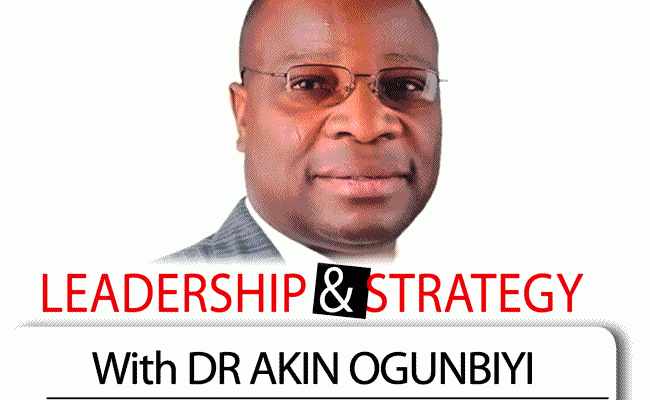
As a businessowner, leader, entrepreneur and manager, it has always been my conviction that no matter how challenging the business environment may be, productivity and performance results can be improved upon and processes skillfully aligned with the day-to-day change-requirements of innovation.
We have been formulating appropriate strategies but execution must achieve goals. The leader must take interlinked decisions and carry out actions that synchronise with competitive moves and tailor-made business approaches.

Strategists are saying that leaders should stop being controlled by paradigms and that logic has become a ceiling that hinders effectiveness and productivity. We cannot successfully make calculated moves if we are still thinking in a linear step-by-step manner and allowing opportunities to pass us by while we are waiting for the validity of inference of relationships, ideas and concepts. We need to regularly peak our team performance and run with the necessary guiding principles.
Business leaders, to be better and more effective, must make the coaching style an integral part of their tool kit. Results of researchers have proved creditably that coaching skills, if well deployed, will effectively support employee development, motivation, and also improve retention, culture-as-competitive-advantage and performance results.
Do you know that insights achieved in interactions between the leader-coach and employees, generate valuable feedbacks and readiness to ask questions? Motivating conversations can then be conducted, this indeed, is an essential cornerstone to promoting psychological safety. Team members feel safe to express themselves and also take interpersonal risks. Employees also feel free to share out-of-the-box ideas. They even feel safe to own-up to failures, even in front of team members. Coaching develops a learning workplace that aids employee development and essentially equips him to work to his full potential.
An effective leader-coach ignites performance by promoting immersive learning and listening, which in turn assure engagement, commitment as well as individual and team accountability. No wonder effective leaders are discerning listeners that are empathetic, creative, intuitive and curious. They, without fuss, commit employees to high standards of performance. They are called “smith-leaders” who effectively craft and forge employees to strive “for their best possible” in the workplace.
The coach-leader maximises employee performance by identifying talents and abilities and revving these up through dynamic exchanges. To achieve outcomes, he manages, teaches and communicates. He explains performance issues and roadblocks and guides associates on how to overcome them.
Supporting associates to deal with strategic issues impacts organisation’s health, corporate strategic direction and gives clarity on goals as well as expectations.
A key aspect of coaching is the Performance Improvement Plan (PIP). Some organisations use it to implement layoff plans but it can be effectively and purposefully utilised to rev-up performance and achieve amazing turnarounds. Through it, lay-back associates can be encouraged to wake-up to self-fulfillment and become star performers.
Professor Margaret Neale and Sarah Soule in their presentations on “essential coaching skills to support employee development, motivation, improve retention, culture and performance results”, noted that coaching develops employee’s sense of purpose, “provides regular and credible feedbacks and direction. It signposts the shift from a transactional model of manager-as-boss or the command and control management style to a more transformational model of leader-as-coach. When Managers use coaching style to lead, they are better positioned to manage the high interdependence required to accomplish innovative tasks and maintain value-improving relational attitude needed to thrive in challenging times”. The duo added that coaching supports performance improvement and professional development. It inspires in staff members a sense of purpose and commitment.
It is their view that in these challenging times, organisations should build a coaching culture. That is, patterns of result-oriented behaviours grounded in collaboration to solve problems and achieve goals.
Another area that leaders should leverage the coaching style is the challenge in connecting everyday tasks with the big picture of corporate goals and objectives. To achieve this, we require employee orientation, training, teaching through impactful activities, recognising and fully appreciating the fact that the employee’s role is key to overall success. Also, awareness should be created on the Consequential Thinking Model. Employees need to know that the journey between options and outcomes has consequences.
The workplace must also imbibe the Lean Philosophy on quicker turnaround on day-to-day actions. It is not just about taking out waste but deliberately improving-efficiency and relevance of processes. Employees must make the process more capable of generating phenomenal value-adding results.
Organisations must urgently create awareness that we have jobs because of the patronage and support of customers. Individual attitudes impact the customer experience. Useful sales knowledge is derived from the understanding of customers’ preferences. Products and services must perform (by way of benefits) better and be more appealing to customers. Also, a macro-analysis of marketing activities must convince us that the organisation is achieving higher inflow and creating beneficial impact on customers.
Let me conclude with the profound implication of misalignment or lack of cohesion between the “I and the team”. Leaders must harness and optimize the influence of talented individuals on teams. While ‘I’s in our teams must be allowed to express themselves for the greater purpose, teamwork is imperative to the success of every employee and the organization. We must all be involved as proud associates of highly creative workforce and be prepared always for peak performance.
READ ALSO FROM NIGERIAN TRIBUNE








